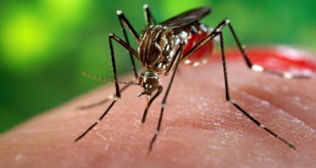
How often should you Donate Blood - Dr. Ramesh C. Khurana
Timely availability of sufficient quantities of blood is required to save lives. In our country, due to a low rate of voluntary donation, the hospitals depend on blood provided by families and friends of the patient, which is not a healthy practice. We need to encourage more voluntary donation. Donating this life-giving substance is considered much superior to any other form of charity, as it saves lives.
Any healthy individual, male or female, in the age group of 8-65 years, with haemoglobin levels of 12.5 can donate blood every three months. The donated blood undergoes mandatory testing for HIV, Hepatitis B and C, malarial parasites and syphilis to make it safe for transfusion. The donors undergo a medical checkup, testing for disease markers and haemoglobin estimation They are entitled to know that they are free from the above mentioned diseases They are also rewarded with personal satisfaction, enhanced self-esteem and safety from cardiac ailments in the long term. Voluntary donors benefit from health education and encouragement to maintain a healthy lifestyle, a regular health checkup and reference to medical care, if needed A voluntary donor is also a health educator, donor recruiter and health promoter in his or her family, work place and community.
As a standard practice, a male can donate blood every three months and a female, four months. Blood donation has numerous benefits which help get rid of negative feelings; it benefits physical health, reduces stress, makes you feel that you did a good deed, improves your emotional well-beinp and reduces your isolation. While the criteria for blood donation for male and female are the same, the situation varies in case of female donors.
- A female blood donor shouldn't be breastfeeding
- Her haemoglobin must be above 125
- She must not be planning a baby
- She must not be having her menstrual cycle on the day she donates blood
- She shouldn't be fasting
- A female donor must know the status of her thyroid and anaemia before donating blood
It takes 72 hours for the body to regenerate the same amount of blood donated and for the duration, the donors must keep themselves hydrated and healthy. You must also tell others that you did a good deed to encourage them to come forward and do the same, Once you have donated blood, you need to take good care of yourself. You must keep the bandage on for four to five hours because the needle used for blood donation is large in size and the point of piercing needs extra care.
The arm from which you have taken blood should be taken extra care of and chores like lifting of weights and strenuous work must be avoided If you are feeling lightheaded or. dizzy, you must hydrate yourself immediately and inform the doctor accordingly.
In case you are donating for the first time, your blood will be tested on different parameters and a certificate will be given to you about your blood composition and tests done. This helps you to understand your blood level correctly. Many people are confused or not aware of their blood group, it is best for you to get it checked at least once. Like blood donation, transfusion also requires a lot of evaluations and checking. You must not hide anything while donating blood because it is required by someone who might be dealing with a life-threatening situation and your one mistake can cause complications for someone else.
Categories
Clear allMeet the doctor

- Internal Medicine | Internal Medicine
-
42 Years
-
1500


















